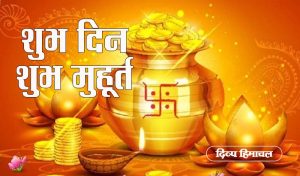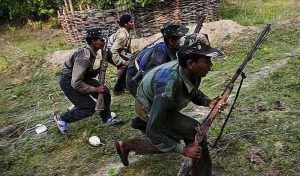Ambedkar Awakened The Conscience Of Dalit Society

(The writer is an Assistant Professor of Politiccal Science in HP University, Shimla)
Baba Ambedkar has given invaluable contribution for the upliftment of dalit society, both at the thought and action level. Dr. Bhim Rao Ambedkar was born on April 14, 1891 in Mahu area in Madhya Pradesh. He was 14th kid of Bhimabai Sakpal (mother) and Ramji. Since his father and grandfather worked for the British army, he got his primary education in schools meant for wards of army persons. But the way forward was not easy. After retirement, his father started living in Satara, Maharashtra.
Grappling with the prevailing conditions then, he matriculated from Bombay University in 1907. One year prior to that in 1906, he got married to a nine years old Ramabai. He pursued his further education from Elphinstone College, Bombay. After graduating in Political Science and Economics, he got a job in Baroda in 1912. After demise of Ambedkar’s father in 1913, Maharaja Gaekwad gave scholarship to Ambedkar and sent him for further studies to America. He did his MA and then Ph.D from Columbia University in 1916. He went for further studies to London but King of Gaekwad called him back to Baroda and made him his political secretary. But his passion for higher education lead him to London again. He did Doctorate degree in Science and degree of law there and returned back to India. He established ‘bahiskrit hitkarini sabha’ on July 1924.
Ambedkar lead a mahar foot journey in 1927 at Kolaba and Chodhar ponds near Bombay to provide drinking water rights to untouchables from public ponds. He took the controversial decision of supporting Simon commission in 1929. The Congress boycotted Simon Commission and made a separate draft of constitution that did not have provision for welfare of exploited class. It created doubts on mind of Ambedkar. On December 24, 1932 Poona Pact held between Mahatma Gandhi and Dr. B.R. Ambedkar. A special provision for reserved seats in vidhan sabhas of the provinces and lok sabhas instead of different electorate division was made in the pact. On August 1936, he constituted Independent
Labour party and won 15 seats in Bombay vidhan sabha elections in 1937. After India’s independence in 1947, he was selected as member of constitution committee from Bengal. Jawahar Lal Nehru made him Law Minister in his Cabinet. He was elected as Chairman of drafting committee of the Constitution too. He presented Hindu Sahinta bill on October 1948. Due to heavy differences within Congress party for this bill, it was delayed for September 1951. Later unnecessary editing was done in the bill and hurt Ambedkar resigned from Union Law Minister post.
On October 14, 1956, he converted to Buddhism with his followers. And on December 6, 1956, he breathed his last. He was honoured with country’s highest award ‘Bharat Ratna’ in 1990. The unique thing about Ambedkar’s work was that he succeeded to a great extent in removing inferiority complex from the minds of dalits. He introduced many provisions for untouchables and exploited class in the constitution. But his biggest worry was that benefits of these provisions will not reach to the needed class if not implemented properly. As for as his revolution is concerned, he succeeded in awakening the conscience of dalits.
Keep watching our YouTube Channel ‘Divya Himachal TV’. Also, Download our Android App













